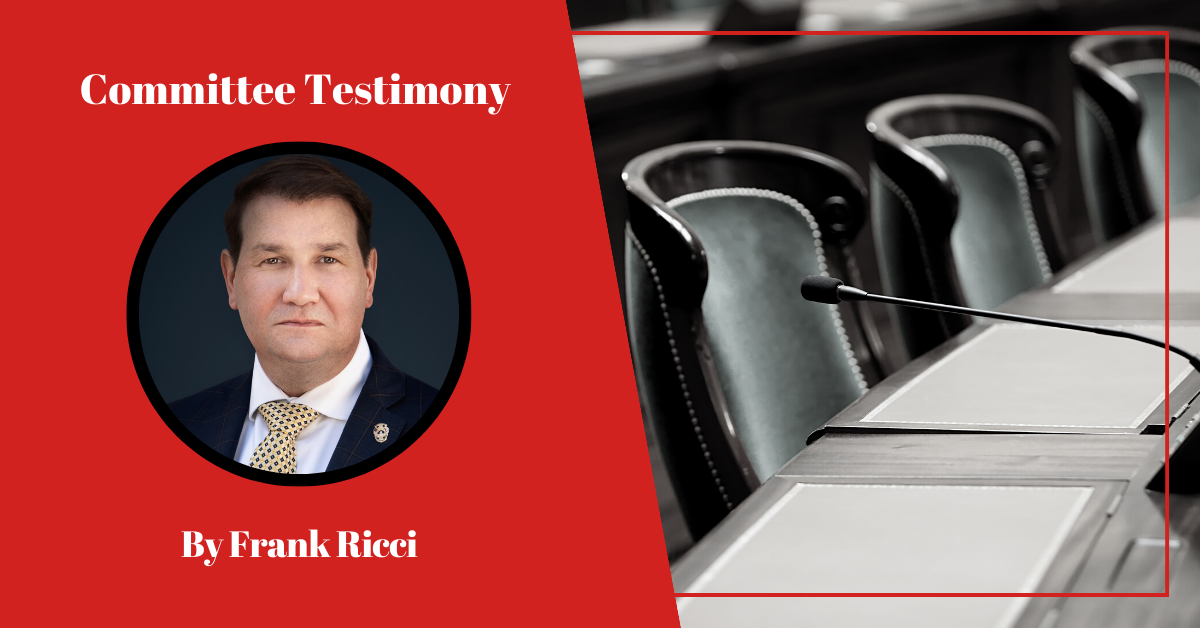February 22, 2023
My name is Frank Ricci and I serve as Yankee Institute’s Labor Fellow. Yankee Institute is a policy organization dedicated to empowering Connecticut’s people to forge a brighter future for themselves and their families.
Yankee Institute opposes H.B. 6720 that seeks to alter the definition of “managerial” employee.” This alteration would allow managers to collective bargain. This proposed change will further blur the lines of authority between management and labor.
Current Connecticut law already conflates a supervisor’s position allowing them to be member of a bargaining unit creating an unintended structural imbalance that limits their effectiveness as supervisors to direct the workforce.
Sec. 5-270. Collective bargaining. Definitions
(f) “Supervisory employee” means any individual in a position in which the principal functions are characterized by not fewer than two of the following: (1) Performing such management control duties as scheduling, assigning, overseeing and reviewing the work of subordinate employees; (2) performing such duties as are distinct and dissimilar from those performed by the employees supervised; (3) exercising judgment in adjusting grievances, applying other established personnel policies and procedures and in enforcing the provisions of a collective bargaining agreement; and (4) establishing or participating in the establishment of performance standards for subordinate employees and taking corrective measures to implement those standards, provided in connection with any of the foregoing the exercise of such authority is not merely of a routine or clerical nature, but requires the use of independent judgment, and such individuals shall be employees within the meaning of subsection (b) of this section.”
Allowing for the definition of “Managerial employee,” to be altered from the definition below that has been codified under current law places the union on both sides of the table creating a further imbalance in the employee, employer relationship.
(g) “Managerial employee” means any individual in a position in which the principal functions are characterized by not fewer than two of the following, provided for any position in any unit of the system of higher education, one of such two functions shall be as specified in subdivision (4) of this subsection: (1) Responsibility for direction of a subunit or facility of a major division of an agency or assignment to an agency head’s staff; (2) development, implementation and evaluation of goals and objectives consistent with agency mission and policy; (3) participation in the formulation of agency policy; or (4) a major role in the administration of collective bargaining agreements or major personnel decisions, or both, including staffing, hiring, firing, evaluation, promotion and training of employees.
Collective bargaining was designed to be an adversarial process with negotiator’s balancing the interest of employees, supervisors, managers, and the taxpayers. Yet, all too often, the taxpayers are forgotten even though these agreements are funded with tax dollars.
Furthermore, this would result in unions essentially negotiating with themselves. Labor has an adage that says, “If you’re not at the table, you’re on the menu.” Yet, if this proposed legislation became law the union would occupy both sides of the table — with the taxpayer’s credit card in hand.
H.B. 6762 may appear to be how a court might view as dicta with an innocuous changing of a single definition in labor law; however, a closer look at the intent flips the bargaining table on the taxpayers and eliminates a needed check on the balance of power.
Thank you for the opportunity to provide testify before this distinguished committee.

